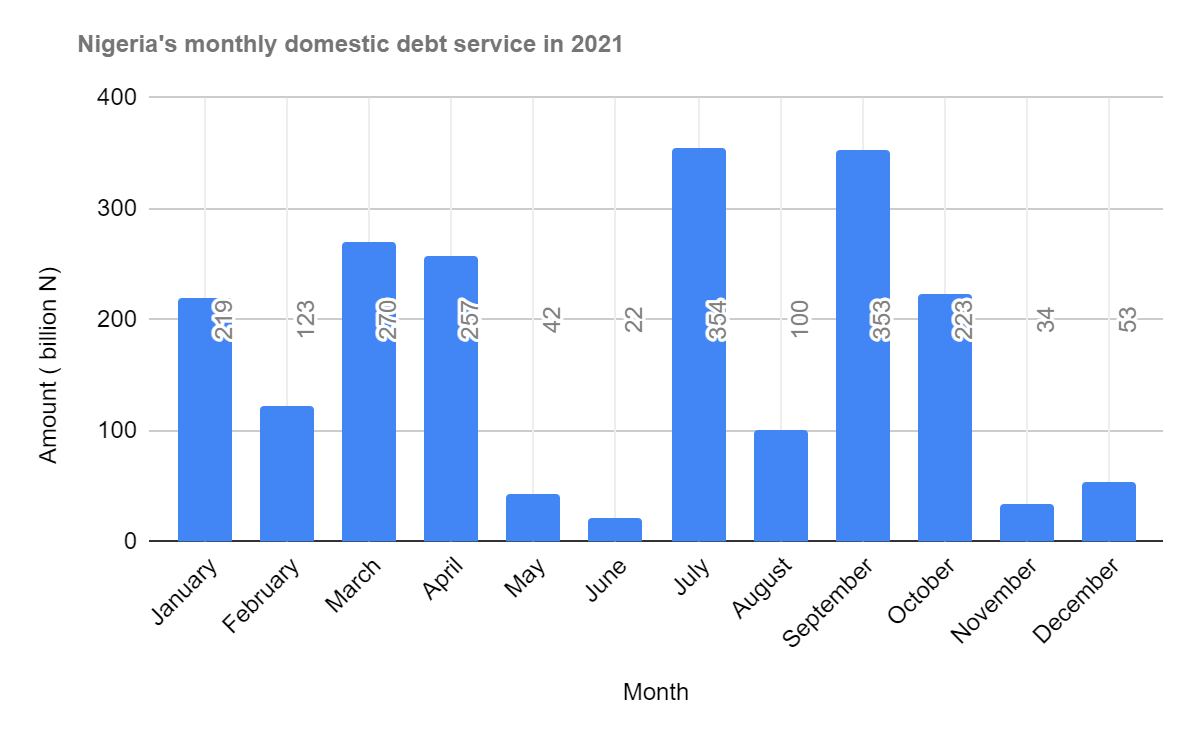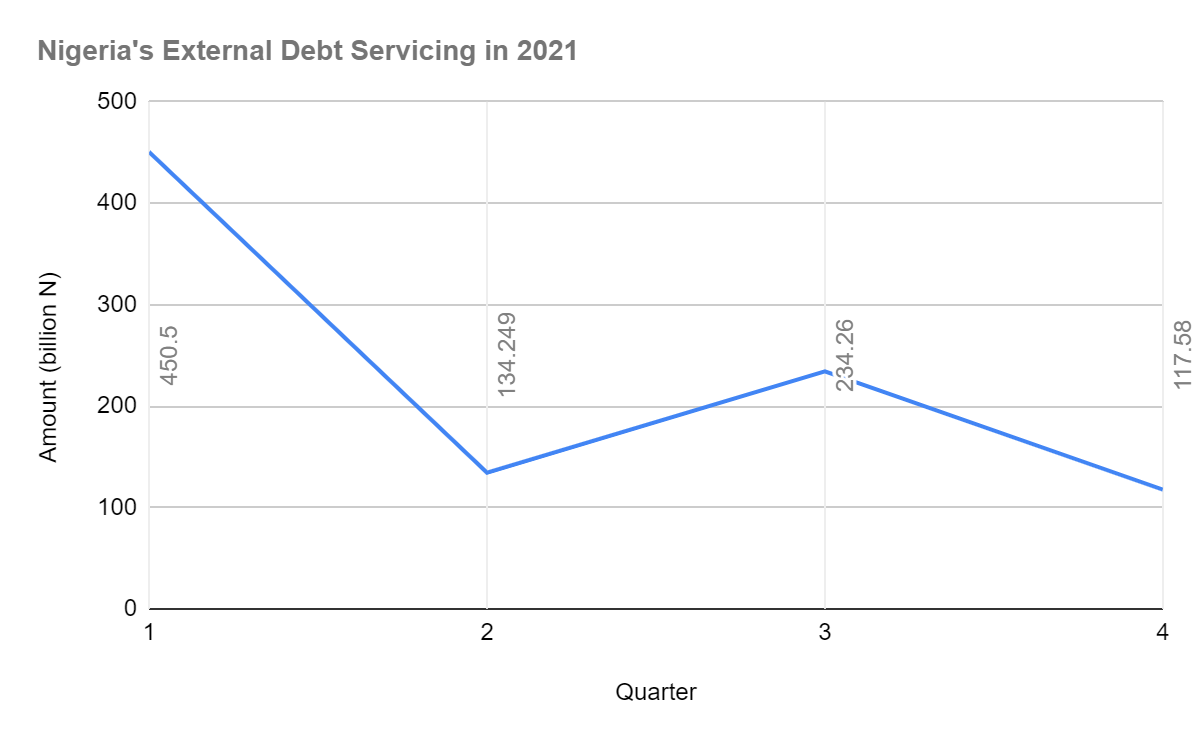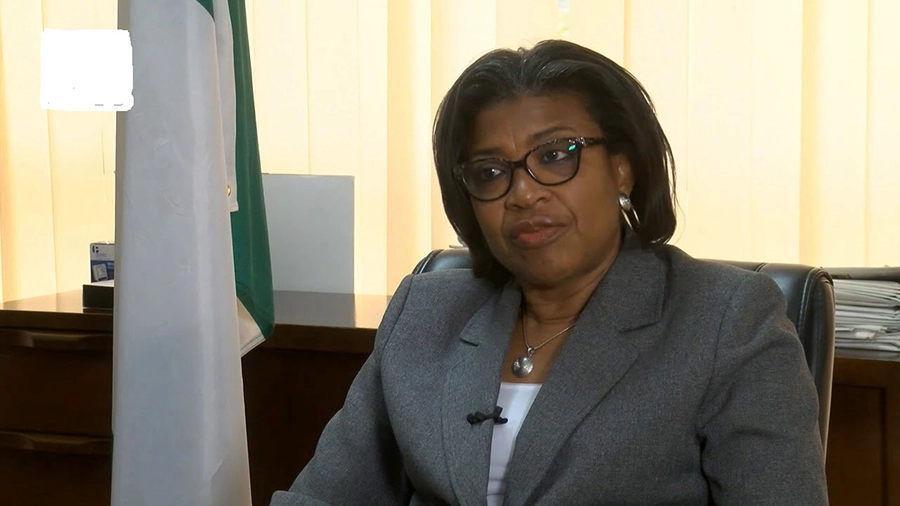A Dataphyte analysis of details on the debt management office has shown that total debt servicing of the country in 2021 stood at over N2.8 trillion.
Domestic and foreign debt servicing cost over N2.8 trillion in the year.
Nigeria spent N310.497 billion on domestic debt servicing in the 4th quarter of the year, N223 billion in October, N34.100 billion in November and another N53.044 billion in December.
In the third quarter, the country spent N808 billion, N354 billion was spent in July, N100 billion in August and another N353 billion in September.
In the second quarter, Nigeria spent N322 billion on debt servicing, April’s bill was N257 billion, May N42 billion and June N22 billion.

In the first quarter of 2021, Nigeria spent N612 billion on domestic debt servicing. In January, the country spent N219 billion, February’s debt servicing cost N123 billion while March’s stood at N270 billion.
In total the country spent N2.052 trillion on domestic debt servicing.
External debt servicing also cost over N870 billion. In the last quarter of 2021, the country spent $283 million (N117.58 billion) on external debt servicing, $520 million (N234.260 billion) in the 3rd quarter, $298 million (N134.249 billion) was spent in the second quarter while $1 billion (N450.50 billion) was spent in the first quarter, totalling $2.1 billion for external debt servicing.
At the CBN’s exchange rate of N415.50 per dollar, it would mean the country spent N871.5 billion
Nigeria’s debt servicing, both local and foreign cost N2.872 trillion in 2021.
Already, the country plans to spend 22% of this year’s budget on debt servicing, a budget that will be resourced up to 38% by borrowing. Between 2022 and 2024, Nigeria will spend N14.6 trillion on debt servicing.

Experts have told Dataphyte that continual borrowings and debt servicing may have negative effects on development goals of the country. Nigeria’s battle with corruption also impacts on returns that could have been gotten from borrowing. Abandoned projects, poor accountability and transparency around MDA spendings among many other misnomers lend credence to stakeholder’s concerns.




